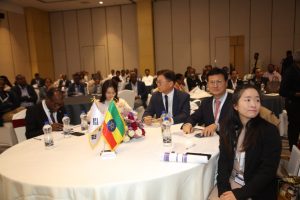
Last Sunday, Ethiopia launched National Voluntary Service Program. The program aims to promote voluntary community services and strengthen social cohesion, contribute to inclusive national growth, as well as develop a wide range of useful skills, and gain knowledge.
It is universally agreed fact that volunteerism plays a key role in addressing major socioeconomic challenges by encouraging citizens to take part in various community-centered activities, making them agents of change and drivers of development.
In Ethiopia, volunteerism has been practiced for long within the context of religious services and/or on the basis of longstanding social responsibilities. Particularly, following communities’ shared history and sense of cohesion, informal volunteerism is a well-established tradition and culture of the communities in Ethiopia.
Even in the formal manner, the activities of volunteerism have been exercised in various occasions in the form of campaign to fend off social challenges identified as national priorities.
The most ambitious national campaign was what is known as – the National Literacy Campaign. It had been initiated in the mid-1970s to eradicate illiteracy from Ethiopia and drawn hundred thousands of individual volunteers to offer their time, expertise and energy.
The national undertaking, apart from involving the highest number of volunteer university students directly and thousands of individuals indirectly, was an action that demonstrated the power and importance of volunteerism to address social and economic challenges.
The effect had made Ethiopia one of the most literate developing nations in the world.
Other activities such as, basin development, seedling plantation, blood donation, education, healthcare delivery, HIV/AIDS prevention, etc. are also some of voluntary practices that have been executed throughout the country in regular manner.
As Ban Ki-moon, the eighth Secretary General of the United Nations, once stated, volunteerism is one of the primary mechanisms by which the Millennium Development Goals will be achieved. And, achieving the Millennium Development Goals will require the engagement of countless millions of people through volunteer action.
Needless to say that Ethiopia is a country with a larger number of youth population. This massive potential, if backed by appropriate policies and managed accordingly, can be the most promising asset to bring about positive changes- to foster a sense of national-identity and unity, strengthen social cohesion and trust among communities and facilitate nation’s transformation agenda concurrent to building individual volunteers’ employability skills and capacities.
Launching the program, Prime Minister Abiy Ahmed urged the youths to harness their energy for productive purposes and apply wisdom in their engagements, being selective in how time is spent and energy is expended, focusing solely on positive deeds.
The youths, engaged in nation’s voluntary service program should exert maximum effort to further strengthen solidarity and create a more caring and inclusive society beyond addressing societal challenges. That is why voluntarism must not be viewed as an expression of goodwill. It is rather a shared responsibility we need to nurture.
The Ethiopian Herald February 26/2020





